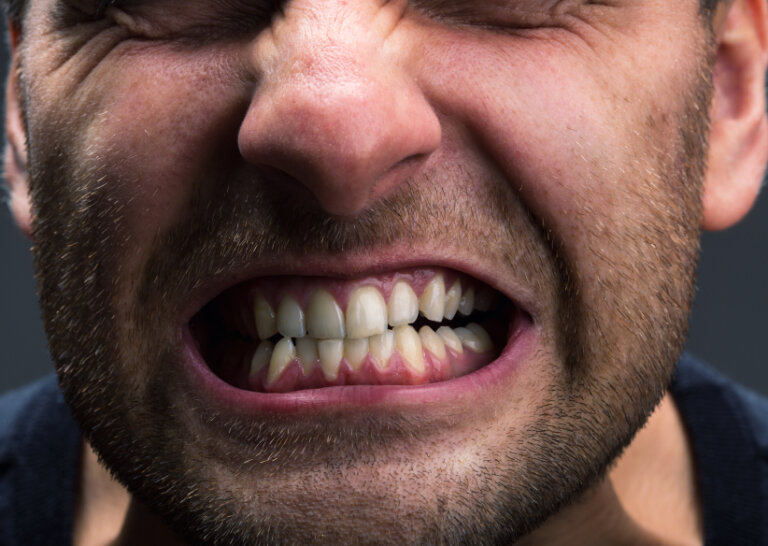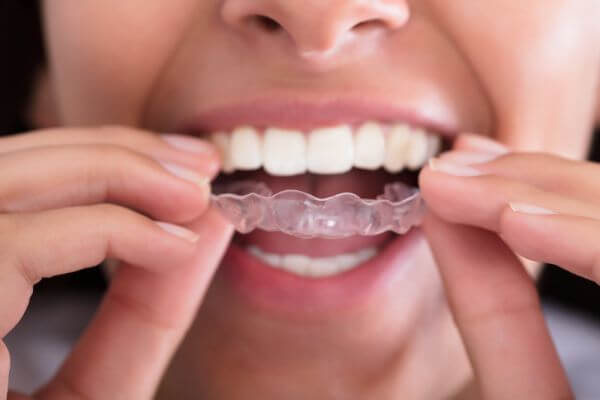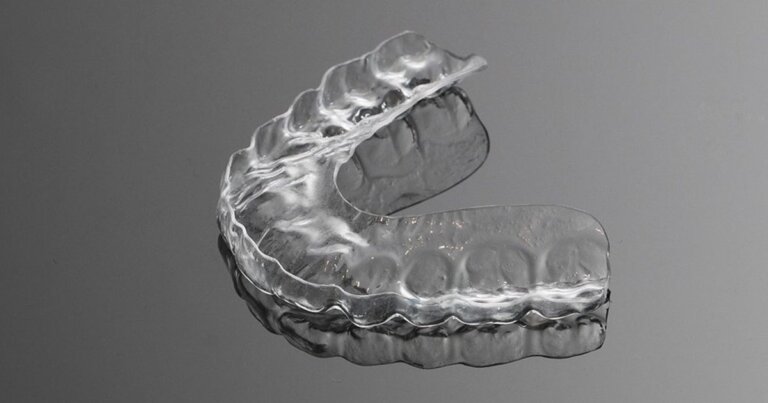Bruxism

What Is Bruxism/Teeth Grinding?
Bruxism, commonly known as teeth grinding, is a condition that affects millions of people worldwide. It involves the involuntary clenching or grinding of teeth, often while sleeping. Left untreated, bruxism can cause significant damage to the teeth, jaw, and surrounding tissues, leading to pain, discomfort, and even tooth loss. It is often triggered by stress and anxiety, which can worsen during high-stress periods, such as during the COVID-19 pandemic.
If you suspect you have bruxism, it’s important to understand the symptoms, causes, and treatment options. Here’s everything you need to know before contacting a dentist in Toronto:
- Why Do I Have Bruxism?
- Common Signs And Symptoms Of Bruxism
- Treatment Options For Bruxism
- How To Prevent Bruxism
- Frequently Asked Questions About Bruxism
If you have questions about Bruxism or other dental problems, please contact us for more information.
Why Do I Have Bruxism?
Bruxism doesn’t have one specific cause. Instead, it is usually due to a combination of factors, including:
- Stress and Anxiety: Emotional stress is one of the primary causes of teeth grinding. The body’s stress response can cause muscle tension in the jaw, leading to grinding, especially during sleep.
- Sleep Disorders: Conditions like obstructive sleep apnea (OSA) often coincide with bruxism. Individuals with sleep apnea may grind their teeth as their body subconsciously tries to keep the airway open.
- Medications: Certain medications, such as antidepressants and antipsychotics, may list teeth grinding as a side effect.
- Misaligned Teeth: An uneven bite can cause your teeth to grind as they attempt to find a comfortable position.
- Lifestyle Factors: Habits like excessive alcohol consumption, smoking, and high caffeine intake can increase the likelihood of developing bruxism.
Identifying the root cause of bruxism is critical to finding an effective treatment. A dental professional can help you determine the cause and recommend solutions. If you have further questions about Bruxism, please contact us.

Common Signs And Symptoms Of Bruxism
If you’re grinding your teeth, you may experience a variety of symptoms, including:
- Teeth Grinding or Clenching: Some people are aware of the grinding sounds they make during sleep, while others only find out during a dental check-up.
- Jaw Pain: Pain or soreness in the jaw, particularly upon waking, is a common sign.
- Headaches: Frequent tension headaches, especially around the temples, are a hallmark of bruxism.
- Fatigue: Waking up feeling tired despite adequate sleep can be another indicator of nighttime teeth grinding.
- Tooth Sensitivity: The constant pressure from grinding can wear down tooth enamel, causing increased sensitivity to hot and cold foods or drinks.
- Damaged Teeth: Chipped, cracked, or broken teeth can occur due to excessive grinding.
- Enlarged Jaw Muscles: Continuous clenching can lead to muscle hypertrophy in the jaw, giving it a more square and bulky appearance.
If you notice any of these symptoms, consult a dentist to prevent further damage to your teeth and jaw. If you have further questions about the signs and symptoms of Bruxism, please contact us.
Treatment Options For Bruxism
Treatment varies based on the severity and cause of your bruxism. Here are some common treatment approaches:
Custom Night Guards: Wearing a dentist-prescribed night guard can protect your teeth from the grinding forces and alleviate jaw pain.
Stress Management: If stress or anxiety is the underlying cause, stress-relief techniques such as mindfulness, exercise, or therapy can help reduce bruxism.
Medications: In some cases, muscle relaxants or antidepressants may be recommended to reduce muscle tension and anxiety.
Dental Restoration: For severe cases of bruxism that have caused damage, dental restorations like crowns, veneers, or fillings may be needed.
CPAP Machine: For individuals with sleep apnea, a Continuous Positive Airway Pressure (CPAP) machine can keep airways open, reducing both sleep apnea and bruxism.
Always consult with a dental professional to determine the most effective treatment for your case. If you have further questions about how to treat Bruxism, please contact us.

How To Prevent Bruxism
Preventing bruxism often involves addressing the underlying causes:
- Manage Stress: Practice stress-reducing techniques such as yoga, meditation, or counseling to reduce the emotional triggers of bruxism.
- Lifestyle Changes: Cut down on alcohol, caffeine, and smoking, all of which are known to exacerbate teeth grinding.
- Use a Night Guard: If you’re prone to nighttime teeth grinding, wearing a custom-fitted night guard can help protect your teeth.
- Treat Sleep Apnea: If bruxism is linked to sleep apnea, seek medical advice for a CPAP machine or other sleep apnea treatments.
By following these steps, you can significantly reduce the likelihood of developing or worsening bruxism. If you have further questions about how to prevent Bruxism, please contact us.
Frequently Asked Questions About Bruxism
- Can stress cause bruxism?
Yes, stress and anxiety are common triggers for bruxism. Relaxation techniques like meditation or stress management may help reduce teeth grinding.
- How can I tell if I have bruxism?
Common signs include jaw pain, headaches, and worn-down teeth. Your dentist can confirm the diagnosis during an examination.
- Is bruxism harmful to my teeth?
Yes, prolonged bruxism can wear down enamel, cause tooth sensitivity, and lead to fractures or damage. Early intervention is key to preventing these issues.
- Can bruxism go away on its own?
In some cases, especially if stress-related, bruxism may subside. However, ongoing cases often require treatment like a night guard or stress management strategies.
Bruxism can have serious effects on your oral health if left untreated, but there are effective solutions to manage it. If you have further questions about how to prevent Bruxism, please contact us.

